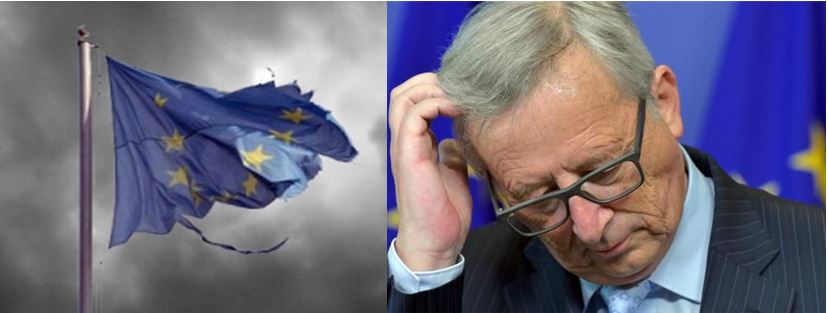How should we celebrate 25th March 2017, the 60th anniversary of the signing of the Treaty of Rome? Many people are asking themselves this tricky question.
In my own opinion, it would be better not to celebrate anything at all. I have no memory of any celebration in 2007 for the 50th anniversary of the Treaty. But never mind – the date is set and many events are planned around Place du Luxembourg, Rond-Point Schuman or higher up among members of the European Council.
But what is there to celebrate?
A celebration would only highlight the dramatic rupture between the previous Europe of action and the current Europe on the road to dismantlement. This same feeling of deterioration is evident in the EU’s leaders. Even before you think of founding fathers such as Monnet, Schuman, Gasperi, Spaak or Hallstein, the likes of Juncker, Tusk, Mogherini and Tajani pale in comparison to Delors, Kinnock, Thorn, Mansholt, Monty and Lamy.
Celebrating the 60th anniversary of the Treaty of Rome can only go hand in hand with a feeling of revolt against all those at EU and national level who have replaced the old Community method with intergovernmentalism and abandoned their political power to the bureaucracy. This laxity, short-sightedness and lack of analysis demands revolt.
Our revolt must be fruitful
The revolt is leading to Euroscepticism and re-nationalisation; in brief, to terminal decline. Our revolt has to be fruitful, and must be accompanied by an affirmation that our future is European. In this period of challenges and the dominance of large blocs, we must call for more Europe and oppose any backwards step.
This conviction, shared by many, has to be backed up by a series of short-term measures aimed at jump-starting the EU machine and restoring the confidence of disappointed Europeans.
I am sorry to speak so harshly, but the first thing that needs to be done right away is the replacement of Commission President Mr Juncker. He is not the only one who has failed and he is not responsible for everything, but by his very name and his inaction he crystallises everything that is wrong with today’s European project. Resignation or censure by the Parliament are the only options available.
An urgent need for authority
We need to return as soon as possible to an EU authority with a head who leads, proposes and delegates – not a head controlled by civil servants. We have seen a take-over by the Cabinets, the Secretariat-General and the Legal Service. In the current College, a large number of bright, competent and experienced Commissioners are being constrained by a system that favours low-level managers and bureaucrats. This situation cannot go on, at a time where around the world (except Europe) authority is being promoted as a key element of good governance.
Along with this, other common sense measures need to be taken: imposing authority all the way down the various levels of the Commission hierarchy, putting an end to the de facto autonomy of Directorate Generals, name a high-level official responsible for simplifying procedures and restore transparency everywhere.
It is also extremely important to make agencies like EFSA, EMA and ECHA truly independent of the Commission, in order to confer an objective role to science in food and plant health regulation, as well as challenge the subjective exploitation of science for particular interests, which prevents any kind of trust between legislators and stakeholders.
Moreover, Commissioners, civil servants and Institutions have to start integrating the word ‘communication’ into their vocabulary – even the great Jacques Delors did not know what it meant. Simplify, explain, communicate. Make Europe readable, facilitate debate, respect opposing views. Publish clear and lively documents. In short, make the European Union a being of flesh, muscle and blood, instead of this asexual bureaucratic body.
On that basis, I would certainly march with others on Rond-Point Schuman or Place du Luxembourg. Otherwise, I will take refuge in my office and think about how similar 2017 is to 1937, and how we are continuing to slip towards the abyss.

